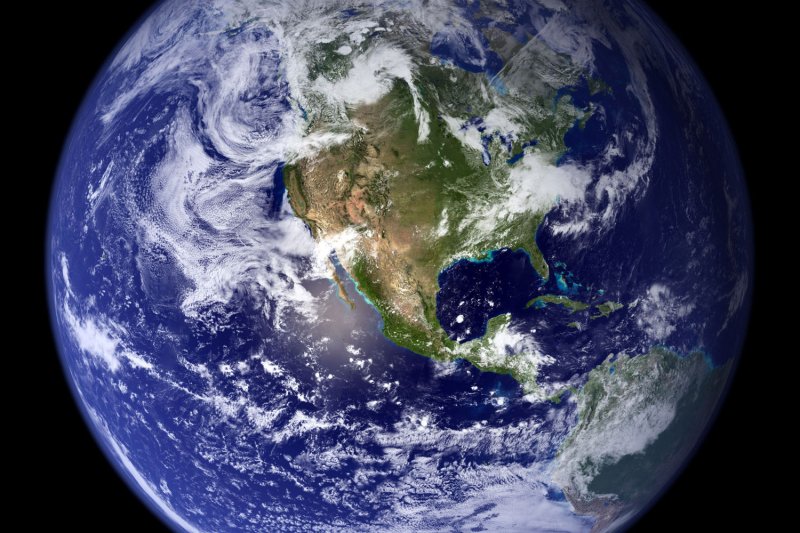Previous research has shown Earth is getting greener. A new study confirms photosynthesis rates have been rising for the last 200 years. Photo by UPI Photo/NASA |
License Photo
April 5 (UPI) -- New research shows photosynthesis has risen globally over the last 200 years.
All life on Earth depends upon photosynthesis, the conversion of sunlight into food by plants and their leaves. But until now, measuring the process in totality proved near impossible.
As studies showed, some human activities boosted photosynthesis, while others curbed the process. But the broader, global picture was muddy -- until now.
"Previous studies covered small physical areas or short periods of time," Elliot Campbell, a professor of environmental engineering at the University of California, Merced, said in a news release. "We set out to find a long-term record for the whole planet."
Campbell and his colleagues estimate the global rate of photosynthesis has increased 30 percent over the last 200 years.
Researchers measured levels of carbonyl sulfide in layers of Arctic snow. Carbonyl sulfide is a relative of CO2 that is removed from the air by plants during the photosynthesis process.
The latest study, published in the journal Nature, didn't attempt to account for the rise in photosynthesis. But computer models have offered several explanations for the rise in photosynthesis, all of them linked to global warming: higher CO2 concentrations in the atmosphere, longer growing seasons and nitrogen pollution.
Increased rates of photosynthesis and plant growth should bolster Earth's natural carbon storage systems, but the rise in CO2 as a result of the rise in man-made greenhouse gas emissions has been too great to compensate for.
"The increase in photosynthesis has not been large enough to compensate for the burning of fossil fuels," said Joe Berry, of the Carnegie Institution for Science and co-author of the paper. "Nature's brakes have already been overwhelmed. So now it's up to us to figure out how to reduce the CO2 concentration in the atmosphere."















